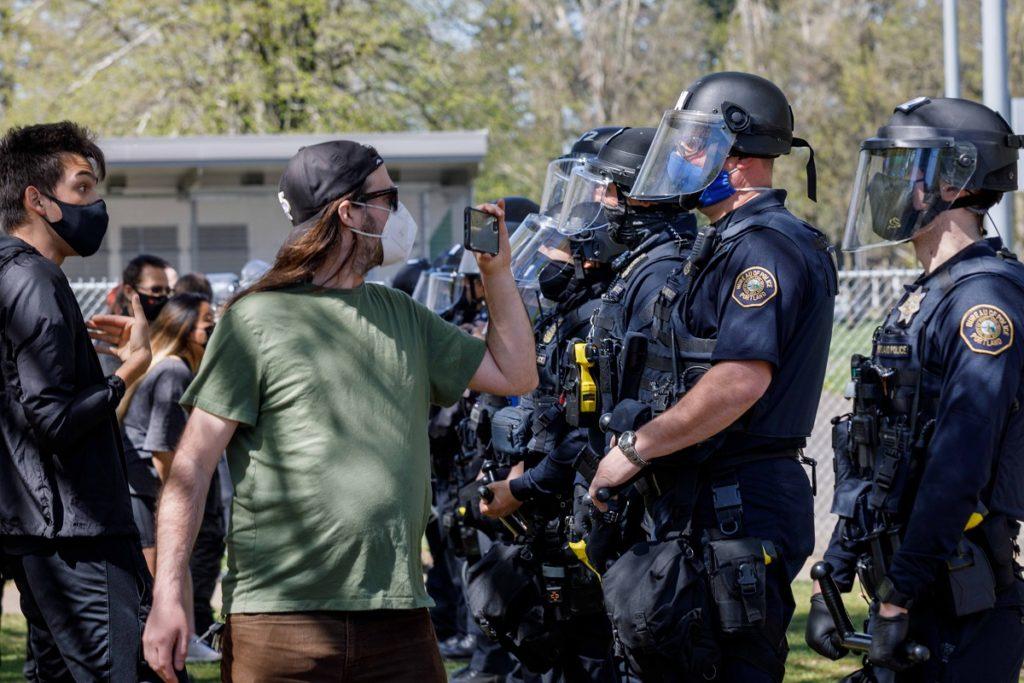When we think about police reform, the conversations often revolve around policies, accountability, and community relations. But what if the key to meaningful change lies deeper—starting right from the ground up, with how officers are trained? Rethinking police training isn’t just about tweaking existing programs; it’s about imagining an entirely new approach that truly prepares law enforcement to serve with empathy, fairness, and effectiveness. In this blog, we’ll explore what true reform in police training could look like, why it matters, and how it might reshape the future of policing as we know it. Curious? Let’s dive in.
Table of Contents
- Understanding the Shortcomings of Traditional Police Training Programs
- Embracing Community-Led Learning to Bridge Trust Gaps
- Integrating Mental Health and De-escalation Skills into Daily Practice
- Exploring Continuous Evaluation and Accountability for Lasting Change
- In Conclusion
Understanding the Shortcomings of Traditional Police Training Programs
Traditional police training programs often prioritize reactionary tactics and physical control techniques over critical thinking and community engagement. These programs tend to focus extensively on compliance and command hierarchies, emphasizing the use of force rather than de-escalation or cultural awareness. As a result, officers may find themselves equipped with skills that reinforce an “us vs. them” mentality, rather than fostering trust and cooperation with the communities they serve. Such approaches can inadvertently perpetuate cycles of misunderstanding and conflict, rather than addressing the root causes of public safety challenges.
Moreover, many training curricula lack comprehensive modules on mental health, bias recognition, and communication skills—areas that are increasingly crucial in today’s complex social landscape. Key shortcomings include:
- Insufficient emphasis on implicit bias and its impact on decision-making
- Limited real-world scenario training emphasizing empathy and negotiation
- Minimal integration of community voices and perspectives into training content
- Outdated assessment methods that prioritize rote learning over practical competence
Addressing these gaps is essential if reform is to move beyond superficial changes. Real transformation demands a paradigm shift that reimagines what effective policing looks like at its core—one that values prevention, cultural competence, and collaborative problem-solving just as much as enforcement.
Embracing Community-Led Learning to Bridge Trust Gaps
At the heart of rebuilding trust between law enforcement and communities lies a shift towards learning models that prioritize collaboration and shared experiences. Traditional training often positions officers as sole recipients of knowledge, but community-led learning breaks down these barriers by encouraging open dialogue and pragmatic problem-solving with those directly impacted by policing. When community voices steer the conversation, training transforms from a top-down mandate into a dynamic exchange that fosters empathy and accountability.
Embedding diverse perspectives isn’t just about inclusion—it’s a foundational step toward sustainable reform. Consider adopting:
- Community advisory panels integrated within training programs
- Real-world scenario workshops led by residents sharing lived experiences
- Ongoing mentorship between officers and community members
These initiatives humanize the process, allowing officers to grasp not just the letter of law enforcement but its real-life impact—often sparking moments of profound understanding and shifting perspectives in ways traditional classrooms rarely achieve.
Integrating Mental Health and De-escalation Skills into Daily Practice
Imagine a law enforcement culture where officers are equipped not only with physical tools but with an emotional toolkit designed to recognize and respond to mental health crises. This means shifting away from confrontation as the default and embedding empathy, patience, and active listening into every interaction. By integrating mental health awareness into daily routines, officers can identify signs of distress early, reducing the likelihood of escalation and harmful outcomes. This approach calls for comprehensive role-playing scenarios, ongoing emotional intelligence training, and collaboration with mental health professionals to co-create intervention strategies that prioritize care over control.
Embedding these skills into daily practice also requires systemic changes that support officers’ well-being and continuous learning. Consider the possibilities when departments foster environments where de-escalation is celebrated as a core success metric, not just tactical compliance. Key components might include:
- Peer support networks for sharing experiences and stress management techniques.
- Regular psychological resilience workshops to equip officers with coping mechanisms under pressure.
- Partnerships with local mental health organizations for real-time guidance during encounters.
By normalizing these practices, the relationship between community and police can evolve from one rooted in fear to one grounded in trust and mutual respect.
Exploring Continuous Evaluation and Accountability for Lasting Change
To drive meaningful reform within police forces, ongoing scrutiny must replace the outdated model of sporadic assessments. This means embedding continuous evaluation mechanisms that not only track performance but also prioritize community feedback and officer well-being. Utilizing real-time data analytics tools paired with regular, scenario-based skill refreshers ensures that training evolves alongside societal changes. Such an approach discourages complacency and fosters a culture where adaptability is valued as much as tactical proficiency.
Accountability must transcend punitive measures and become a holistic practice integrated at every level. Consider these transformative strategies:
- Transparent reporting systems accessible to the public for incident reviews, enhancing trust through openness.
- Peer-to-peer evaluations that encourage constructive feedback within departments, reducing fear of repercussion.
- Community advisory panels that collaborate directly with police leadership to co-design training priorities.
When continuous evaluation and accountability converge, they create a dynamic ecosystem where learning never stalls—paving the way for lasting change that is not only operationally effective but socially just.
In Conclusion
As we continue to navigate the complexities of policing in today’s society, the question of how to truly transform police training remains both urgent and open-ended. What if reform isn’t just about adding new protocols or courses but about fundamentally reimagining the culture, values, and goals that shape every interaction on the beat? Exploring innovative approaches—from community involvement to trauma-informed methods—could be the key to unlocking more meaningful change. The journey toward true reform is far from over, and staying curious about what’s possible is essential. So, what might the future hold if we dare to rethink police training from the ground up? The conversation is just beginning, and your thoughts could be part of the solution.












